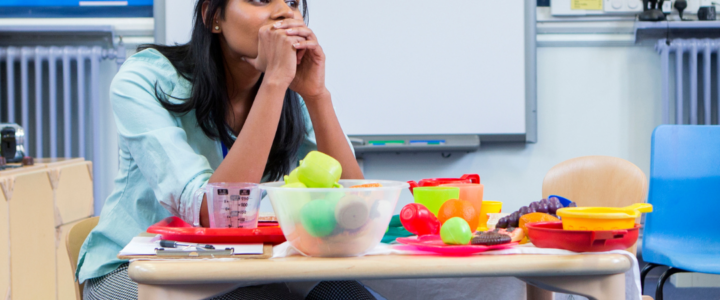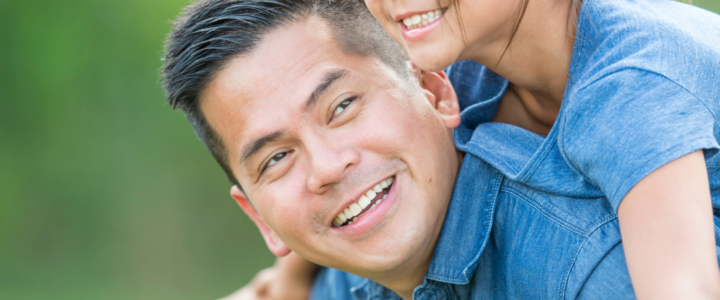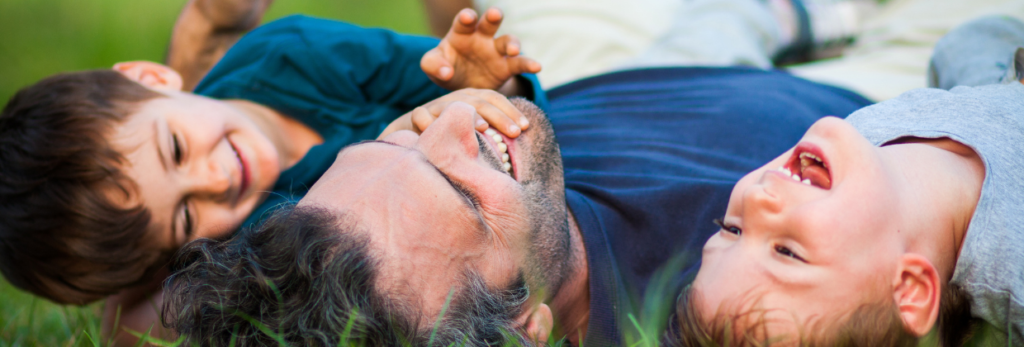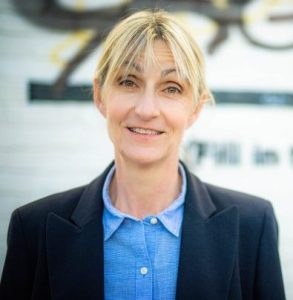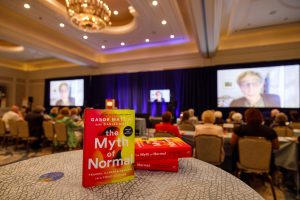NEWS RELEASE
April 25, 2023
For immediate release
Media contact: Cara Scarola Hansen
Center for Child Counseling Public Relations Counsel
cara@yourmissionmarketing.com
561-632-6747
Fritzi Horstman Discusses Childhood Trauma Related to the Prison Population: “See people for who they are, not for what they’ve done.”
Center for Child Counseling series on fighting ACEs continues in conjunction with National Child Abuse Prevention Month and Second Chance Month.
Fritzi Horstman, founder and executive director of the Compassion Prison Project, stressed seeing people “for who they are, not for what they’ve done” in her presentation during Center for Child Counseling’s Part III of its 2023 Lead the Fight series on Wednesday, April 19, 2023. Emceed by Eugenia Millender, Ph.D., RN, chair of the Center’s Board of Directors, the event virtually gathered more than 200 community members and leaders from all over the world to address adverse childhood experiences (ACEs) and childhood trauma in relation to the prison population.
The event took place in conjunction with both National Child Abuse Prevention Month and Second Chance Month–recognizing the importance of families and communities working together to prevent child abuse and neglect AND recognizing the need to build meaningful second chances for the millions of people returning to society from incarceration each year.
As a nurse scientist, Dr. Millender is co-founder and co-director for the Florida State University Center for Population Sciences for Health Equity and an associate professor at the FSU College of Nursing. She researches stress, trauma, and mental health disparities among underserved populations using principles of community-engaged and community-led research. In her opening remarks, Millender presented data related to the prison population’s impact on Palm Beach County in 2022. 44,782 arrests were made and 1,088 people were admitted to the Florida Department of Corrections (FDC), ranking PBC seventh of 67 counties in the number of admissions to FDC. Approximately 1,100 individuals were released from FDC and returned to PBC.
Palm Beach County is a microcosm of what’s occurring nationally. Horstman believes it is imperative that we address the chronic mental health issues in prison with common sense, compassion, and urgency. Compassion Prison Project is an organization dedicated to creating trauma-informed prisons and communities, bringing accountability and creative inspiration to all men and women living and working in prisons.
In 2020, Horstman directed “Step Inside the Circle” at California State Prison, Los Angeles County with 235 incarcerated men. The video is a call to recognize the physical, emotional, and social impact ACEs have wrought upon society and stress the importance of care–not punishment–going forward in the prison system.
ACEs without intervention predict various adverse health outcomes. For instance, an individual with four or more ACEs is seven times more likely to go to prison. According to trauma and addiction expert Dr. Gabor Maté who has worked with Horstman on many projects, “When you study prison populations, you see a preponderance of childhood trauma and mental illness. The two go together. So, what we have in prisons are the most traumatized people in our society.”
Through the Compassion Prison Project, Horstman and her team are calling for change within the prison system and restoring the prisoners’ human dignity and healing their trauma with understanding, compassion, and love.
“If punishment worked, there would be no prisons, because most of the children that have ended up in prison were all punished, were all destroyed. They were physically abused, emotionally abused, sexually abused, neglected, told they were nothing. So, that’s punishment. They’ve already been punished. Violence for a violent act doesn’t work. The only thing that works is love. The only thing that changes anything is love.”
With 95% of our nation’s incarcerated men and women eventually returning home, Horstman recognizes the necessity of rebuilding lives through awareness, self-love, and self-care. Her goal is to give them purpose and direction and have them make a difference while they are sitting in their cells. When incarcerated individuals are eventually released, they need to be healed and have hope to be positive contributors to society and reduce the rate of recidivism.
Horstman gave the example of working with child abusers, “They are going to go home one day, so, if they’re not in good shape, if they don’t feel human…they’re going to continue. It’s my job to make sure, it should be every person’s job in the prison to make sure, those men are in great shape going home.”
She emphasized enforcing accountability and the damage that has been done by those incarcerated, but “if I’m being punished by everything I’ve done in the past, then I can’t move forward.” When speaking with the prisoners, Horstman aims to take their victimhood out of the equation and gives them empowerment to change their outlook and reason for being in prison to one with purpose and hope.
“When I walk into prisons, what happens is, I start seeing people for who they are and not for what they’ve done. Because if you look at what they’ve done…you recoil. But when you look at who they are, you see their magnificence.”
In her closing thoughts, Horstman quoted Bob Kerrey, “‘Unexpected kindness is the most powerful, least costly, and most underrated agent of human change.’”
Following Horstman’s presentation, Dr. Millender called on the attendees to join in leading the fight against ACEs by committing to taking action: become ACEs-aware and -informed through training; invest in early childhood development; join the Center’s new Giving Circle; or send letters and information provided by the Center to policy makers urging them to drive supportive change.
Center for Child Counseling, in conjunction with Leadership Palm Beach County Class of 2017, developed ‘Lead the Fight’ in 2016 to bring awareness to system leaders around fighting childhood adversity with advocacy and action. In 2021, the event was transformed into a virtual action series in response to the pandemic and the urgent need to move forward policies and practices that support children’s mental health and resilience. Virtual conversations continued in 2022.
The 2023 Lead the Fight series is continuing with monthly conversations and events through June, hosting nationally- and internationally-recognized experts on various topics. More information and registration regarding the next event will be available soon at www.centerforchildcounseling.org/leadthefight.
Partnership sponsors who are leading the fight in making these important and necessary panel conversations possible include: The Breakers Palm Beach and Kathy Leone, The Hanley Foundation, The Haley Foundation, Julie Fisher Cummings and the Lovelight Foundation, SageView Advisory Group, Florida Association for Infant Mental Health, First Republic Bank, Lighthouse ArtCenter, Premier Pediatrics, The Journey Institute, Florida Association for Infant Mental Health, Searcy Denney Scarola Barnhart & Shipley, Stephens & Stevens, Marital and Family Law.
The Center’s Fighting ACEs initiative to build trauma-informed communities is made possible with the generous support of Quantum Foundation, Community Foundation for Palm Beach and Martin Counties, and private donors.
About Fritzi Horstman:
Fritzi Horstman is the Founder and Executive Director of the Compassion Prison Project (CPP) an organization dedicated to creating trauma-informed prisons and communities, bringing accountability and creative inspiration to all men and women living and working in prisons.
Horstman is a Grammy-award winning producer for her work on “The Defiant Ones”, has been a producer and post-producer on dozens of television projects and documentaries and has directed several films. She believes it is urgent to bring humanity and compassion to those living behind bars and these acts will help transform our society. She has a Bachelor’s Degree from Vassar College.
About Center for Child Counseling:
Center for Child Counseling has been building the foundation for playful, healthful, and hopeful living for children and families in Palm Beach County since 1999. Its services focus on preventing and healing the effects of adverse experiences and toxic stress on children, promoting resiliency and healthy family, school, and community relationships. As of October 2022, KidSafe Foundation now operates under Center for Child Counseling as the two entities are now stronger together in their education and prevention of child sexual abuse and childhood trauma.
www.centerforchildcounseling.org Twitter: @ChildCounselPBC Facebook: @CenterforChildCounseling Instagram: @childcounselpbc
PHOTO IDs:
Fritzi Hostman, Founder and Executive Director of Compassion Prison Project
Eugenia Millender, Ph.D., RN, emcee of the Lead the Fight event; chair of Center for Child Counseling’s Board of Director; co-founder and co-director for the Florida State University Center for Population Sciences for Health Equity; associate professor at the FSU College of Nursing
Click here to view the news release.
###

